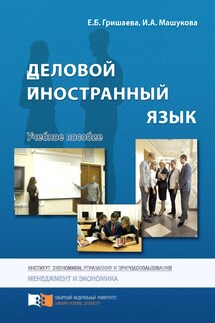Деловой иностранный язык - страница 15
Along the same lines, participation can be seen as a training device. Few people are born with a genius for decision-making. Most of us need our talents cultivating. But it is not just a question of managers nurturing the talents of their subordinates. The managers are judged by their ability to comply with targets set, and they can only achieve their targets with the aid of their subordinates. The last thing a wise manager wants is a poorly trained team.
Finally, in a democratic society, people expect to be consulted with regard to matters which will affect them. The workplace is no exception. Many societies now enjoy a reasonable degree of political democracy and are moving towards the next stage in the process – industrial democracy – including supervisory boards of directors, works councils and various types of co-ownership. The only questions remaining, in fact, are ‘how far?’ and ‘how fast.
Task 24. Talking Point 5
Work in groups of three and discuss the following:
▪ To what extent do you think employees should have a say in the running of a business?
▪ Do you think there should be workers/directors on the boards of limited companies?
▪ Do you think employers should operate a ‘full disclosure policy’ so far as their employees are concerned? What are the dangers?
▪ How far do you think industrial democracy can, and should, be introduced?
▪ Which groups in society benefit if a business succeeds, and which groups lose if it fails?
▪ Consult Speaking References p. 126–130.
Here are some expressions that you may use in the discussion:
Task 25. Role-play 1
Study the conflict situation below. Answer questions, divide into two groups and choose the roles. Act out a meeting where you try to solve a problem and take a decision.
Problem
Here is the case how the Directorate of a Russian producer plant acted in a conflicting situation.
The root reason for the conflict was insufficient quality of the equipment delivered by a West European supplier. The maximum capacity reached was about 1600–1800 pieces of steel moulds p/h instead of 2000 pieces designed. Another complaint was that part of the equipment was still in a warehouse where it had been for more than 2 years. Progressively the losses were running into a huge sum.
To cut the loss, the management of the plant decided to exercise their legal right to compensation. They made a formal claim on their business partners and submitted all relevant supporting documents.
Under Russian law the liability for damages is limited to 50 per cent of the value of the goods supplied. The plant management was determined to recover the amount of loss.
Questions
1. Do you find the position of the Buyers substantiated?
2. What losses were incurred by the Buyers?
3. What could be the Sellers’ position in the dispute?
4. Who has a real chance to win the case if the matter is submitted to Arbitration?
Roles
The Buyers’ side: Managing Director, Manager of the Finance and Currency Department.
The Sellers’ side: Chief Business Executive, Product Manager, Technical Expert.
Buyers
You represent the interests of the Russian Production Plant. You claim full compensation for the losses. The list of damages includes:
1. Part of the purchase price for the delivered equipment,
2. Projected transport charges back to the country of origin,
3. The fee to the Experts’ Commission.






